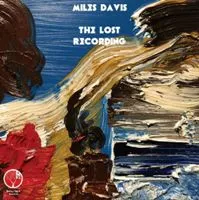Styles: Modal
Year: 2009
Time: 44:41
File: MP3 @ 320K/s
Size: 102,7 MB
Art: Front
(16:20) 1. Concierto De Aranjuez (Adagio)
( 3:48) 2. Will o' the Wisp
( 3:54) 3. The Pan Piper
( 4:58) 4. Saeta
(12:15) 5. Solea
( 3:22) 6. Song of Our Country
Sketches of Spain 50th Anniversary Legacy Edition CD 2
Year: 2009
Time: 44:41
File: MP3 @ 320K/s
Size: 102,7 MB
Art: Front
(16:20) 1. Concierto De Aranjuez (Adagio)
( 3:48) 2. Will o' the Wisp
( 3:54) 3. The Pan Piper
( 4:58) 4. Saeta
(12:15) 5. Solea
( 3:22) 6. Song of Our Country
Sketches of Spain 50th Anniversary Legacy Edition CD 2
Styles: Modal
Year: 2009
Time: 69:54
File: MP3 @ 320K/s
Size: 160,7 MB
Art: Front
( 3:46) 1. The Maids of Cadiz
( 7:21) 2. Concierto De Aranjuez (Adagio) (Rehearsal Take)
(12:05) 3. Concierto De Aranjuez (Adagio) (Alternate Take, Part One)
( 3:33) 4. Concierto De Aranjuez (Adagio) (Alternate Take, Part Two)
( 1:02) 5. Concierto De Aranjuez (Adagio) (Alternate Ending)
( 3:11) 6. The Pan Piper (Take 1)
( 2:59) 7. Song of Our Country (Take 9)
( 3:10) 8. Song of Our Country (Take 14)
( 6:02) 9. Saeta (Full Version Master)
(17:06) 10. Concierto De Aranjuez (Adagio) (Live)
( 9:33) 11. Teo
Sketches of Spain 50th Anniversary Legacy Edition CD 1 & 2
Year: 2009
Time: 69:54
File: MP3 @ 320K/s
Size: 160,7 MB
Art: Front
( 3:46) 1. The Maids of Cadiz
( 7:21) 2. Concierto De Aranjuez (Adagio) (Rehearsal Take)
(12:05) 3. Concierto De Aranjuez (Adagio) (Alternate Take, Part One)
( 3:33) 4. Concierto De Aranjuez (Adagio) (Alternate Take, Part Two)
( 1:02) 5. Concierto De Aranjuez (Adagio) (Alternate Ending)
( 3:11) 6. The Pan Piper (Take 1)
( 2:59) 7. Song of Our Country (Take 9)
( 3:10) 8. Song of Our Country (Take 14)
( 6:02) 9. Saeta (Full Version Master)
(17:06) 10. Concierto De Aranjuez (Adagio) (Live)
( 9:33) 11. Teo
SKETCHES OF SPAIN by Miles Davis: Each of Miles' four orchestral album collaborations with arranger-composer Gil Evans - Miles Ahead (1957), Porgy And Bess (1958), Sketches Of Spain (1959), and Quiet Nights (1962) - was a masterwork in its own right. Sketches was Miles' first post-Kind Of Blue project, and retains that LP's modal feel on the 16-minute version of Rodrigo's "Concierto de Aranjuez,' the inspiration for Davis and Evans. Liner notes for the 2009 edition of SKETCHES are written by composer academician Gunther Schuller, whose hundreds of accomplishments in jazz include playing French horn for Miles on the 1949-50 Birth Of The Cool sessions. SKETCHES was recorded in 1959 and released in 1960.
This historic edition presents the original album augmented by alternate and extra tracks, illustrating how this synergy developed. "The Maids of Cádiz" (from the 1957 album Miles Ahead) is the first example of Gil Evans adapting a composition of Spanish origin for an orchestral collaboration with Miles. The live performance of "Concierto de Aranjuez," the only such ever given, took place in Carnegie Hall in 1961, offering a rare, heightened performance of this centerpiece. "Teo," (from the 1961 album Someday My Prince Will Come) a small group piece dedicated to Producer Teo Macero, is simpatico with "Solea"--the other jewel from the original album, with its orchestral palette that is, in a word, sublime.




















